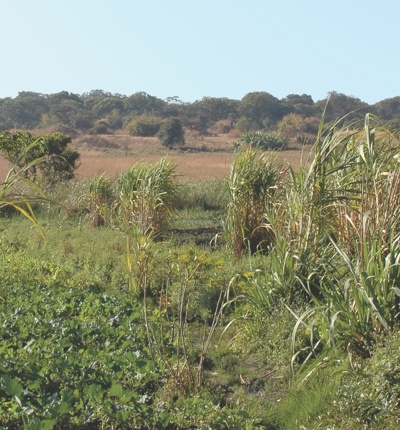
Supreme Court rules Zambian villagers' case against Vedanta to be heard in English courts
The Supreme Court has ruled today that a case brought by almost 2,000 Zambian villagers against Konkola Copper Mines (KCM) and its parent company Vedanta Resources Plc can be heard by the English courts. KCM is a Zambian company which is a subsidiary of UK-based Vedanta.
Posted on 10 April 2019
The claimants allege that as a result of the toxic effluent discharge from the Nchanga Copper Mine which is run by KCM they have suffered loss of livelihoods through damage to the land and waterways and health problems through having to consume and use polluted water. Now that jurisdiction has been determined their claims will be heard in the High Court at a date to be determined.
Read our legal briefing on the case
As part of the judgment today the Supreme Court also ruled that companies can be held to account for the commitments they make publicly regarding their subsidiaries and their commitments to the communities they serve.
The claimants, represented by law firm Leigh Day, have been fighting for four years to have their case heard in the English courts. They argued that they would not be able to achieve justice in the Zambian courts due to the lack of funding available for claimants in such claims and the lack of legal representatives with the necessary qualifications and experience to properly bring the case. The Supreme Court agreed with these arguments. The court also determined that there is a triable issue between the claimants and Vedanta, as well as KCM, and that Vedanta arguably owes a duty of care to the claimants as the parent company of KCM.
The court heard that Vedanta has published material claiming to have control and responsibility over KCM and material in which it asserted its responsibility for the establishment of appropriate group-wide environmental control and sustainability standards, for their implementation throughout the group by training, and for their monitoring and enforcement. The Supreme Court ruled that Vedanta must be held accountable for these publicly made statements and it therefore has a duty of care towards the claimants.
This ruling could have wider implications for companies who make public commitments relating to their responsibilities to communities and the environment and then fail to put these into practice.
Oliver Holland, solicitor at law firm Leigh Day representing the Zambians, said:
“After four years fighting for this case to be heard by the English courts we are delighted that our clients’ case can now go ahead in the UK where there is a real opportunity for justice.
“Our clients argued that as the UK-based parent company of KCM, Vedanta also had a duty of care towards them and should be held responsible for the damage they allege has been caused by the mine. Indeed in Vedanta’s own published materials the company claims to have control over the mine and to have responsibility for the proper standards of environmental control across its subsidiaries. The court has ruled today that Vedanta cannot merely pay lip service to these statements and must be held accountable for them.”
Martyn Day, senior partner at Leigh Day, added:
“I hope this judgment will send a strong message to other large multinationals that their CSR policies should not just be seen as a polish for their reputation but as important commitments that they must put into action.”
Background
The Zambians first issued their claim against KCM and Vedanta in the High Court in August 2015. They allege that as a result of the toxic effluent discharge from the Nchanga Copper Mine (run by KCM) they have suffered loss of income through damage to the land and waterways on which they rely. They further contend that many are suffering from personal injuries as a result of having to consume and use polluted water. They are seeking damages, remediation and cessation to the alleged continual pollution that they say is gravely impacting their lives.
In order to bring the claims against Vedanta and KCM for damages relating to the alleged damage caused to their environment, livestock and health the issue of jurisdiction needed to be determined to decide which country should hear the case.
Following service of proceedings in August 2015 both KCM and Vedanta challenged the jurisdiction of the English Courts, filing applications which sought, among other things, a declaration that the court does not have jurisdiction to try the claims. In April 2016 the Technology and Construction Court heard submissions and evidence from all parties during a three day hearing. In May 2016 Coulson J found in favour of England as the most appropriate forum for the resolution of the claims allowing the claims to proceed against both Defendants.
Vedanta and KCM both appealed the first instance decisions and their appeals were heard over two days by the Court of Appeal in July 2017. The Court of Appeal upheld the entirety of Coulson J’s conclusions. The Defendants appealed to the Supreme Court and the case was heard on 14-15 January 2019 before Lady Hale, Lord Wilson, Lord Hodge, Lady Black, and Lord Briggs. Judgment was handed down on Wednesday 10 April 2019 with Lord Briggs giving the leading judgment to which the other panel members all agreed.
Now that jurisdiction has been determined the substantive claims by the Zambian villagers will be heard in the High Court.

